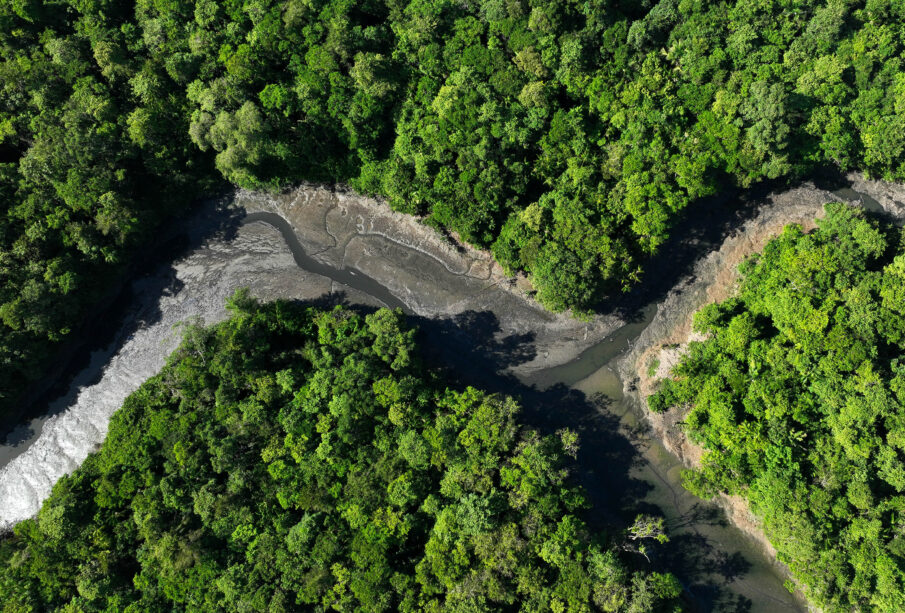Home countries of major rainforests agree to work together to save them
 A general view shows the water conditions of the Piraiba river before a summit of Amazon rainforest nations, in Belem, Para state, Brazil August 6, 2023. REUTERS/Ueslei Marcelino
A general view shows the water conditions of the Piraiba river before a summit of Amazon rainforest nations, in Belem, Para state, Brazil August 6, 2023. REUTERS/Ueslei MarcelinoBy Ange Adihe Kasongo Reuters
Countries that are home to the world’s three major rainforests agreed on Saturday to cooperate to overcome deforestation and safeguard biodiversity but fell short of a concrete alliance to protect the vital carbon sinks.
The announcement came on the final day of the Congo Republic-hosted Three Basins summit, which brought together presidents, NGOs, technical experts, and finance sector officials to strengthen governance and preservation of the Amazon, the Congo basin, and forests in Southeast Asia.
The countries recognised the importance of cooperation and agreed to develop ways to protect the forests in a seven-point plan.
“We’ve realised that joining forces is an absolute necessity, and we’ve recognised that the initiative to unite the three basins is part of an inevitable dynamic,” said Republic of Congo environment minister Arlette Soudan Nonault.
There is an urgent need for action. The basins are home to two thirds of Earth’s biodiversity, but rapid destruction is releasing planet-warming carbon dioxide and imperilling global climate targets.
Deforestation increased 4% worldwide in 2022, according to an October report showing countries went further off track from pledges made at the 2021 U.N. climate talks to halt and reverse loss and degradation by 2030.
Over the three days of the summit in Brazzaville, experts and policymakers from countries with tropical forests discussed shared priorities ahead of the U.N. COP28 climate talks next month. They examined different funding mechanisms to help developing countries preserve their important ecosystems.
On the sidelines, Congo Republic signed a roadmap for a forest partnership with the European Union that aims by 2030 to increase the amount of its protected, restored or sustainably managed forests, create more forest-related jobs, and curb the rate of forest loss.
Environmental organisations said governments must go further than Saturday’s agreement.
“More efforts will be needed to enhance concrete collaboration between the three regions to foster real action to halt deforestation,” the World Wildlife Fund said in a statement.










